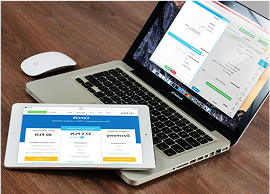Job preparation involves a range of activities to increase your chances of securing a desired position. This includes updating your resume, creating a LinkedIn profile, networking, and preparing for interviews. Specifically, job preparation involves updating your resume to highlight relevant experience and skills, crafting an elevator pitch, researching companies, and practicing your interview responses
- BE ON TIME. This means ten to fifteen minutes early.
- KNOW THE INTERVIEWER’S NAME OR ORGANISATION AND HOW TO PRONOUNCE IT. Whether you should use Mr., Ms., Mrs. their job title. If you don’t know the proper usage, ask the receptionist.
- BRING A SPARE COPY OF YOUR RÉSUMÉ IN A BRIEFCASE OR FOLDER. This demonstrates that you are prepared.
- EXPECT TO SPEND SOME TIME DEVELOPING RAPPORT. Don’t rush the small-talk.
- WATCH YOUR NON-VERBAL COMMUNICATION. Sit up straight and maintain appropriate eye-contact.
- EVERYONE GETS NERVOUS. In fact, nervousness can be a good sign; it shows that you are taking the interview seriously. Nevertheless, try to avoid nervous mannerisms such as tapping fingers, playing with pens, etc.
- MIRROR THE INTERVIEWER. Try to match the interviewer’s tone, volume and demeanor.
- BE SURE YOU UNDERSTAND THE QUESTION. Feel free to ask for clarification.
- EMPHASIZE THE POSITIVE. Employers love optimism and a good attitude
- SILENCE IS OKAY. Use intentional pauses to think through and reflect.
- DON’T TALK ABOUT SALARY. This can be brought up once the job is offered to you.
- EMPHASIZE WHAT YOU CAN DO FOR THE ORGANIZATION. Bottom line: Employers are concerned most with what you can do for them. Show that you care about the organization, not just your own agenda.
- AVOID GENERIC ANSWERS. Employers know a “set answer” when they hear one.
- BRING A PEN AND PAPER, BUT LEAVE IT IN THE CAR. Immediately following the interview, write down as much as you can remember, as well as jotting down your feelings and impressions. After a number of interviews you will be glad you didn’t trust your memory to remember everything.
- NEVER SLIGHT A FORMER EMPLOYER, COLLEAGUE, TEACHER OR INSTITUTION. If there were problems with previous experiences, try to put your answers in the positive rather than the negative. If you slight a former employer, the interviewer may assume that you will someday do the same to him or her.
- LET YOUR PERSONALITY AND EXCITEMENT SHOW. Avoid sounding rehearsed.
- HAVE SOME QUESTIONS PREPARED. Make a list of 5-6 meaningful questions to ask at the end of the interview.
- DO NOT EXPECT AN OFFER ON THE SPOT. Offers usually follow the interview, sometimes two or three weeks later. If, by any fluke, you would be offered the position on the spot, it is appropriate for you to ask for one or two days thinking time before responding.
INTERVIEWING: QUESTIONS AN EMPLOYER MAY ASK YOU
QUESTIONS ABOUT YOURSELF/CAREER GOALS
- Tell me about yourself.
- What are your major strengths? Weaknesses?
- What qualifications do you have that will make you successful?
- What do you do in your leisure time?
- Tell me about an accomplishment in which you take pride.
- What qualities do you admire in others?
- Where do you hope to be in five (ten) years?
- What does success mean to you?
- What is your career goal?
- How does your education relate to our needs?
- What were your favorite and least favorite subjects in school?
- What kinds of professors did you like?
QUESTIONS SPECIFIC TO THE COMPANY/JOB BEING APPLIED FOR
- Why do you want to work for us? Why are you interviewing with us?
- Why are you interested in this field?
- What would be your greatest contribution to our operation?
PREVIOUS WORK EXPERIENCE QUESTIONS
- What have you learned from some of your past jobs?
- What jobs have you enjoyed the most? The least? Why?
- Do you like routine work?
- What specific skills acquired or used in previous jobs relate to this position?
- How do you handle criticism?
- What kind of boss do you prefer?
Interviewing: Questions You May Ask An Employer
- Can you tell me about your own experience with the company/organization?
- What do you consider to be your organization’s three most important assets?
- What do you see ahead for your company/organization in the next ten years?
- Does your company encourage further education?
- What characteristics do achievers in this company seem to share?
- Where does this position fit into the departmental/organizational structure?


https://shorturl.fm/6lYTq
https://shorturl.fm/gFqUF
https://shorturl.fm/XIiBN
gv0484
https://shorturl.fm/nU12E